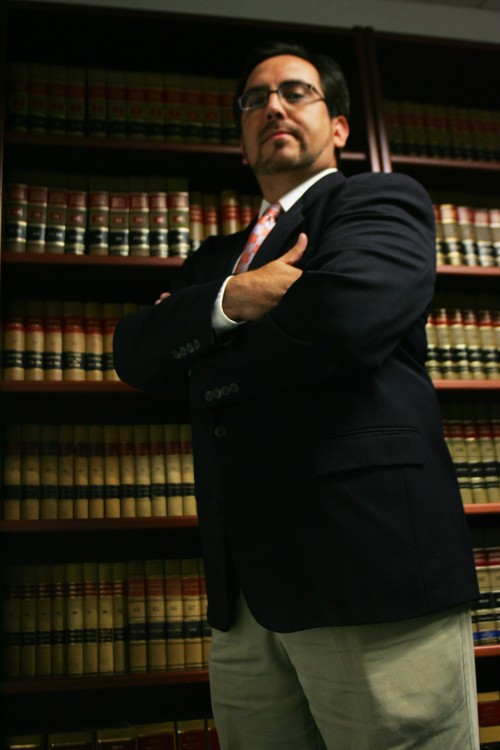A UA graduate and adjunct faculty member has won a case upholding the death penalty of a former UA student who was convicted of beating, raping and murdering another UA student.
Vince Rabago, a state prosecutor for the Arizona attorney general’s office, graduated with his undergraduate degree from the UA in 1989, nine years after the murder occurred.
On Sept. 18, 1980, Scott Drake Clabourne and Charles Langston lured Laura Webster, 22, to a party that didn’t exist after meeting her at the Green Dolphin, a local nightclub that closed in the late ‘80s. Webster was then raped and beaten by Clabourne and Langston over six hours, then strangled and stabbed to death, and her body was dumped in the Santa Cruz Wash in Tucson.
The murder went unsolved for a year until Clabourne’s girlfriend contacted the police and reported Clabourne’s self-proclaimed involvement, according to Gabriel Chin, a professor of law at the UA.
Clabourne was convicted in November 1982 on one count of first-degree murder, one count of kidnapping and three counts of sexual assault and he was given the death sentence, according to an appeal from the Superior Court of Arizona in Pima County by Clabourne.
Since being convicted, Clabourne has been appealing the decision in every way possible.
In 2005, a federal judge ruled that Clabourne had been given insufficient representation.
“”Here’s a twist to all of this,”” Rabago said, “”if the court changes any part of the case it gets sent all the way back to the state court for a re-sentencing proceeding.””
A jury found Clabourne guilty of all charges and once again handed up the death sentence.
In 2005, Clabourne filed a federal habeas corpus petition in federal court hoping to overturn the previous sentencing.
“”What happened recently in this case was that the federal judge upheld the death penalty sentence that was reimposed back by the state courts in 1997,”” Rabago said. “”I represented the state and U.S. district court fighting to uphold the death penalty.””
The case shows how long the death penalty takes to be enforced in the U.S. justice system.
“”When I first got the case and worked on it I had certain thoughts about it,”” Rabago said. “”Then I started teaching at the law school at UA and things changed.””
Although the Clabourne case is unique in that the victim was a UA student and Rabago teaches UA students and remains affiliated with the university, he said that he devoted the same level of time and energy to the case as he would for any murder victim.
Despite a personal connection to the case, Rabago stands by his statement, “”every case has its own story, but every victim deserves equal justice.””
“”The judge’s long-awaited decision brings this case one step closer to justice for the victim Laura Webster and her family,”” he said.
Rabago is no longer working on this case, and has been assigned to state and national fraud cases.
“”But I’m confident that whoever handles it will do a fine job,”” Rabago said.
Rabago supervises UA law students through the law school’s clinic program at the Consumer Protection and Advocacy Section Office of the Attorney General.









